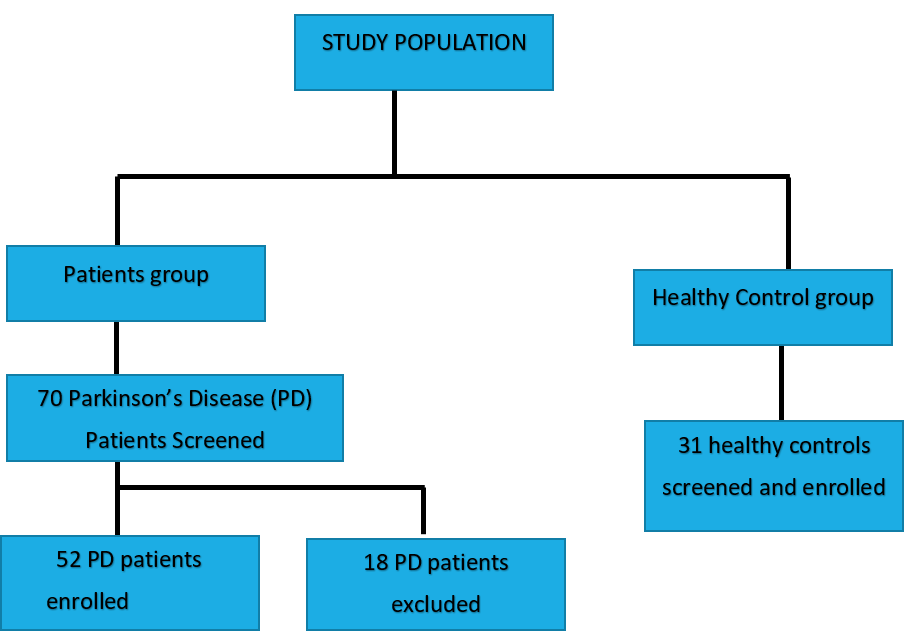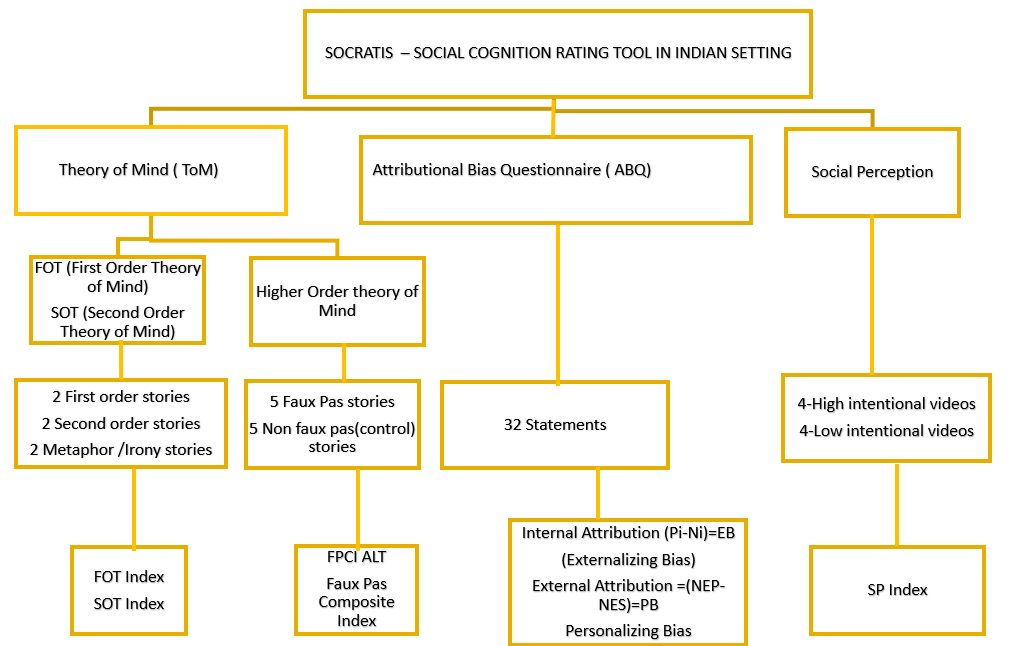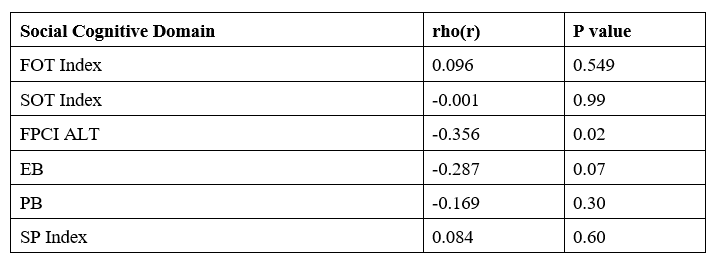Category: Parkinson's Disease: Cognitive functions
Objective: Objective: To assess deficits in social cognition among patients with Parkinson’s Disease (PD)
Background: Background: Social cognition is the study of how people make sense of themselves and others. Deficits in social cognition may affect interpersonal relationships and social functions. Parkinson’s disease (PD) is a complex neuro degenerative disease with multiple motor and nonmotor symptoms. Cognitive problems are dominant in advanced PD and subtle impairment in various cognitive domains may coexist even in early PD. There are four sub-domains of social cognition: emotion processing, theory of mind (ToM), social perception and knowledge, and attributional bias. In this study, we explored for the first time, all domains of social cognition in Indian PD patients using a culturally appropriate, validated instrument.
Method: Methods: We conducted a cross-sectional study including 52 patients with PD and 31 age, gender matched healthy controls (HC)[Figure 1]. We used HAM-D and MOCA scores to exclude patients with significant depression and cognitive impairment. We applied the SOCRATIS (Social Cognition Rating Tools in Indian Setting) tool to score the theory of mind, attributional biases and social cue perception. [Figure 2] Additionally, we assessed the quality of life (QOL) in PD using the PDQOL scale.
Results: Results: Baseline characteristics were comparable between PD and HC. There were statistically significant deficits in three indices of social cognition in PD patients compared to healthy controls. The mean (SD) of FOT index (first order theory of mind index) in PD was 0.86±0.18 and HC was 0.99±0.07 [P <0.001]. There was higher Externalizing Bias (EB) in the PD group (4.42±3.91), compared to control group (1.58±3.22) [P=0.001]. The mean (SD) of FPCI ALT (Faux Pas Control Index) in PD was 0.69±0.09 compared to HC (0.78±0.13), (P <0.001). Social cognition indices were not associated with QOL in PD [Table 1). Clinical parameters age, gender, HAM-D, MOCA, education, levodopa equivalent daily dose of medication, number of PD drugs and trihexyphenidyl use were not predictors of social cognition.
Conclusion: Conclusion: In this study, PD patients were less successful than age, gender matched controls in understanding social situations and other’s thought processes and had higher tendency to attribute undesirable events to external causes. Deficits in social cognition did not impair the quality of life.
References: 1. Roca M et al. Impairments in social cognition in early medicated and unmedicated Parkinson disease. Cogn Behav Neurol Off J Soc Behav Cogn Neurol. 2010 Sep.
2. Freedman M, Stuss DT. Theory of Mind in Parkinson’s disease. J Neurol Sci. 2011 Nov
3. Mehta UM et al. Validation of Social Cognition Rating Tools in Indian Setting (SOCRATIS): A new test-battery to assess social cognition. Asian J Psychiatry. 2011 Sep
4. De Boer AGet al. Quality of life in patients with Parkinson’s disease: development of a questionnaire. J Neurol Neurosurg Psychiatry. 1996 Jul.
To cite this abstract in AMA style:
G. Siripurapu, R. Rajan, D. M R, E. A, A. Gupta, V. V Y, M. Singh, R. Bhatia, M. Tripathi, A. Srivastava, M. Srivastava, B. Verma, D. Biswas. Social cognition in Parkinson’s disease [abstract]. Mov Disord. 2022; 37 (suppl 2). https://www.mdsabstracts.org/abstract/social-cognition-in-parkinsons-disease-2/. Accessed July 4, 2025.« Back to 2022 International Congress
MDS Abstracts - https://www.mdsabstracts.org/abstract/social-cognition-in-parkinsons-disease-2/



